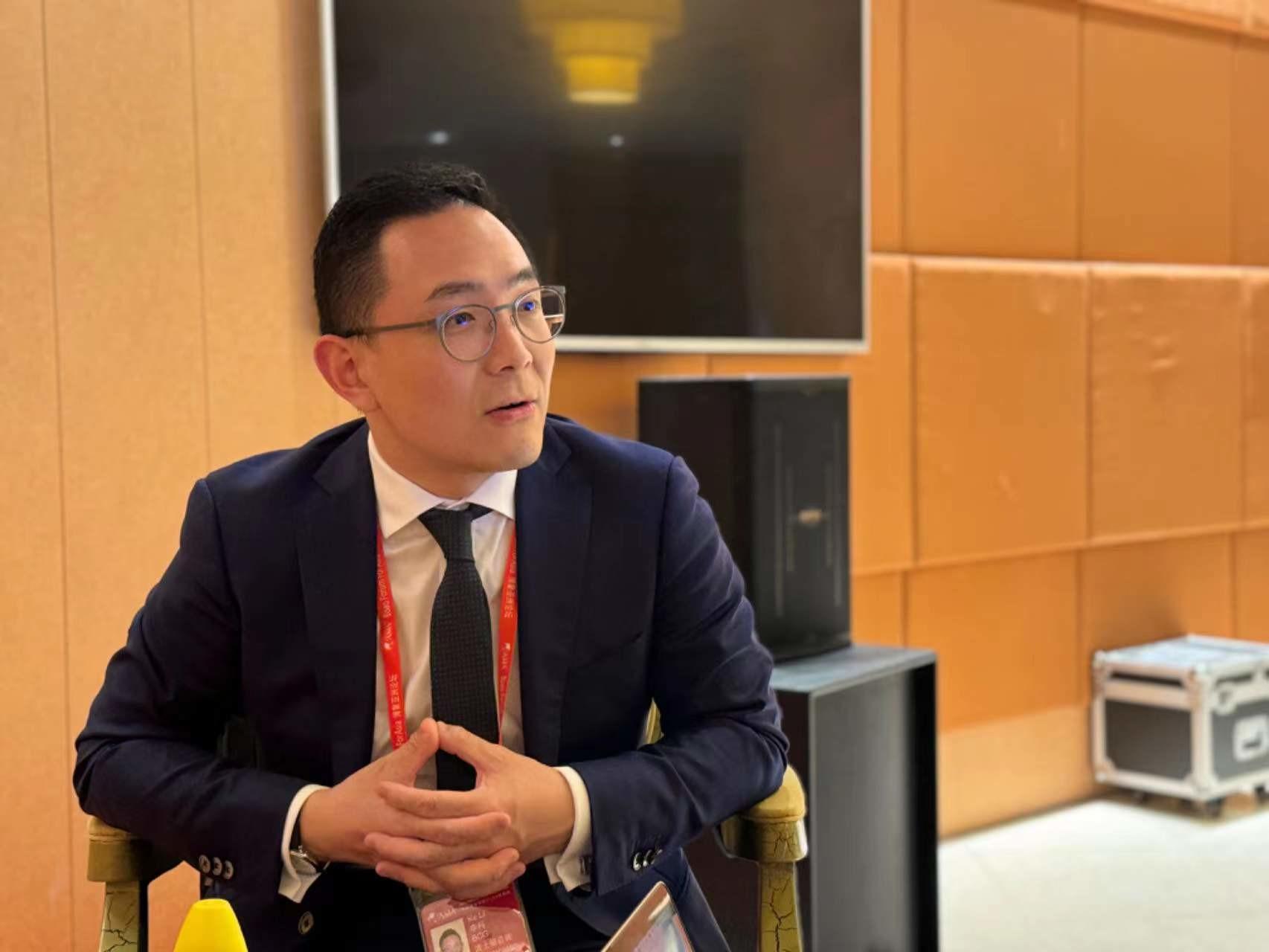 Eric Li Ke, a new energy vehicle specialist and managing director and partner of Boston Consulting Group, gives an interview to China Daily on the sidelines of the Boao Forum for Asia Annual Conference 2024 in Hainan province. (OASIS HU / CHINA DAILY)
Eric Li Ke, a new energy vehicle specialist and managing director and partner of Boston Consulting Group, gives an interview to China Daily on the sidelines of the Boao Forum for Asia Annual Conference 2024 in Hainan province. (OASIS HU / CHINA DAILY)
Hong Kong has been urged to play a more prominent role in promoting new energy vehicles by undertaking various initiatives, such as embracing policy concessions and developing infrastructure, to cultivate an environment for the wider adoption of new energy vehicles.
Eric Li Ke – a new energy vehicle specialist and managing director and partner of Boston Consulting Group -- made the call in an exclusive interview with China Daily on the sidelines of the Boao Forum for Asia Annual Conference 2024 in Hainan province.
The Hong Kong Special Administrative Region government launched the Hong Kong Roadmap on Popularization of Electric Vehicles in March 2021, aimed at stopping new registrations of fuel-propelled and hybrid private cars by 2035 or earlier. By late January this year, Hong Kong already had 79,580 electric vehicles – about 8.6 percent of the total number of all in the city.
Li said the SAR can still do more to raise that figure by maintaining proactive industrial policies for electric vehicle users, such as subsidies, licenses and right-of-way support. It’s also important to improve the infrastructure for EVs
Li said the SAR can still do more to raise that figure by maintaining proactive industrial policies for electric vehicle users, such as subsidies, licenses and right-of-way support. It’s also important to improve the infrastructure for EVs.
Some of the existing charging networks in the city need to be refurbished and upgraded, and this calls for greater cooperation among various parties, like grid companies, property developers and builders.
Upgrading infrastructure may require significant investments and may not yield immediate benefits in the short term. But, in the long run, the benefits would outweigh the costs.
Li noted that in a profit-driven free market like Hong Kong, merchants may hesitate to improve EV infrastructure. Hence, it becomes crucial for the government to take the lead in collaborating with stakeholders to make the necessary improvements.
Hong Kong should also create infrastructure to accommodate high technologies like smart cockpits and autonomous driving.
Li said the electrification of mobiles often encompasses enhancing intelligence as the number of electric vehicles increases, including automated technology. Additionally, as an international market, Hong Kong naturally attracts new technologies and innovative models. Hong Kong residents have more standardized driving habits, and the city has better urban planning, further contributing to its potential as a frontrunner for advanced technologies.
By proactively creating a conducive environment for cutting-edge technologies, Hong Kong can offer a more enriching experience to a larger consumer base, creating greater opportunities for the development of EVs.
Li suggested that the SAR government promote the development of EVs vehicles in the public transport system. By introducing EVs in public transportation, residents can directly experience the benefits of new energy vehicles, such as smoother driving conditions, reduced noise pollution, and lower emissions, increasing their acceptance and familiarity with EVs.
Compared with the high share of electric vehicles in the private-vehicle market, the share of electric commercial vehicles in Hong Kong is relatively low, indicating a specific area for improvement, Li said. To address this, the government should target commercial vehicle users, such as drivers of buses, minibuses and taxis. These drivers rely heavily on their vehicles as important production tools, leading to a more conservative and traditional mindset when considering vehicle replacements.
For instance, commercial vehicles often need to operate continuously, placing higher demands on better batteries and charging infrastructure. Additionally, they may require more frequent repairs, highlighting the need to bolster the after-sales service network.
While many drivers may have acquired the skills to self-repair their gasoline-powered vehicles over the years, the transition to electric cars would require substantial investments of time and money to adapt to new technologies. This presents a challenge that both the government and industry must address and find solutions for, Li said.
Referring to the first hydrogen-powered bus that entered service in Hong Kong in February this year, Li said the project shows the government's commitment to introducing innovative technologies, as well as its intention to upgrade the transportation sector for a cleaner future.
He said hydrogen energy, which produces water as the only byproduct, is a cleaner source. Using hydrogen energy vehicles offers advantages like user experience and convenience, which will be a future trend. However, he noted there’ve been controversies over the hydrogen bus, such as concerns about the lack of laws and regulations for hydrogen-powered vehicles in the region.
As hydrogen is a more dangerous gas that could cause explosions, stronger safety protection measures and relevant regulations are needed, and the government should act promptly, Li said.
Globally, the industrialization of hydrogen vehicles is still in its infancy, Li noted.
Although some leading foreign companies have developed relatively mature technologies, the lack of policy support, financial backing, talent and infrastructure has hindered large-scale industrialization. It’s unlikely that the hydrogen-vehicle industry will take shape before 2030, Li said.
Introducing hydrogen-powered buses in Hong Kong is a good start as it’ll make people pay more attention to, and contemplate issues relating to hydrogen buses. This can raise their awareness and foster discussions about the potential of hydrogen as an alternative energy source in the future, Li said.
“Exemplary projects are often like attempts to cross the river by feeling the stones,” Li said. “But, by gaining knowledge of potential pitfalls and challenges, valuable insights and endeavors can be formed to enhance future initiatives.”


